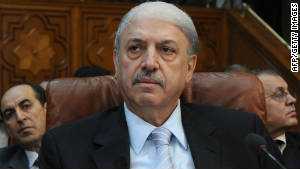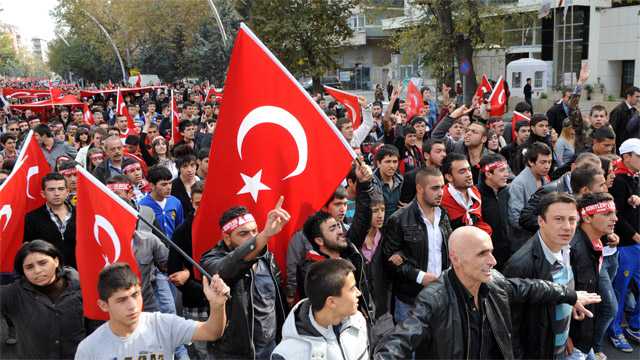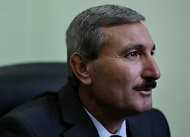By MARC CHAMPION
ISTANBUL—Turkey’s delayed promise to levy sanctions against Syria is back on the agenda, with Prime Minister Recep Tayyip Erdogan likely to announce them on a visit to refugee camps along the border “soon,” according to a senior Turkish official.
Turkey’s leaders, however, look set to go on moving cautiously even as they talk tough, because of the high domestic and regional high stakes involved, and Saturday’s Arab League decision to turn up the heat on Damascus is unlikely to change that calculus, analysts say.
Turkish officials are playing down the likely scope of any new sanctions, while long-rumored plans to create a military buffer zone inside Syrian territory are off the government’s agenda, “for now,” the Turkish official said.
On Saturday night, pro-regime protesters attacked Turkey’s embassy and consulates in Syria in response to the Arab League’s threat to suspend Syria’s membership and impose sanctions, underlining the extent to which relations between Ankara and Damascus have deteriorated. Turkey isn’t a member of the Arab League.
In a clear message to Damascus, Foreign Minister Ahmet Davutoglu responded by calling leaders of the Syrian opposition to meet him in Ankara for talks on Sunday evening. Turkey also sent a plane to evacuate the families of diplomats in Syria, issued a travel advisory against visiting the country and demanded guarantees from Damascus for the safety of its diplomats.
“We strongly condemn the deplorable attacks which took place yesterday night ” the foreign ministry said in a statement.
Until Syria’s President Bashar Al-Assad began a bloody crackdown against protesters eight months ago, Ankara was among his staunchest supporters. That changed dramatically by June, as Damascus ignored Turkish pressure to end the killing.
Ankara has responded by blocking weapons shipments to Syria from Iran and hosting Syria’s opposition leaders as well as commanders of the self-styled Free Syrian Army. But so far it has resisted joining the U.S. and the European Union in imposing broad economic sanctions.
Last month, Mr. Erdogan said he would announce a new package of sanctions when he visited Syrian refugee camps on the Turkish side the 900 kilometer border between the two countries on Oct. 9. The visit was canceled, however, when Mr. Erdogan’s mother died just two days before the planned visit.
Talk of sanctions then disappeared as Ankara became focused on more immediate threats. On October 20, Turkey sent some 10,000 troops to attack militants from the outlawed Kurdish Worker’s party, or PKK, on both sides if Turkey’s border with Iraq. Three days later, a major earthquake hit Van, on Turkey’s border with Iran.
“The prime minister has been planning to go to the camps…but because of the earthquakes, he hasn’t been able to,” said the senior Turkish official, who declined to be named. “He’ll probably make the trip soon, but we don’t yet have a date.”
Ankara’s caution in moving to take tougher action reflects a complex web of risks it faces on its eastern borders, analysts say. These include potential Syrian—and Iranian—support for the PKK, which has been fighting the Turkish state since 1984, at a cost of at least 30,000 lives. Turkey’s President Abdullah Gul has issued Damascus a public warning that consequences would follow should Syria help the PKK.
Meanwhile, Turkish businessmen near the border with Syria have lobbied against broad sanctions, unwilling to lose $2.4 billion in annual trade that has continued despite the unrest in Syria, according to Turkish trade statistics. And Turkish officials worry that broad sanctions could hurt ordinary Syrians, providing Mr. Assad with a propaganda victory.
At the same time, Turkey is trying to manage relations with Iran, as the two countries increasingly vie for influence in the region. But while Mr. Erdogan will likely keep more drastic measures against Damascus in reserve, Turkey is by now committed to removing Mr. Assad, according to Ilter Turan, professor of international relations at Istanbul’s Bilgi University.
That is because “as long as Assad is there, the road for Iran to extend its influence through the Middle East and the Mediterranean is open,” said Mr. Turan.
via Turkey Puts Syria Sanctions Back on Agenda – WSJ.com.






